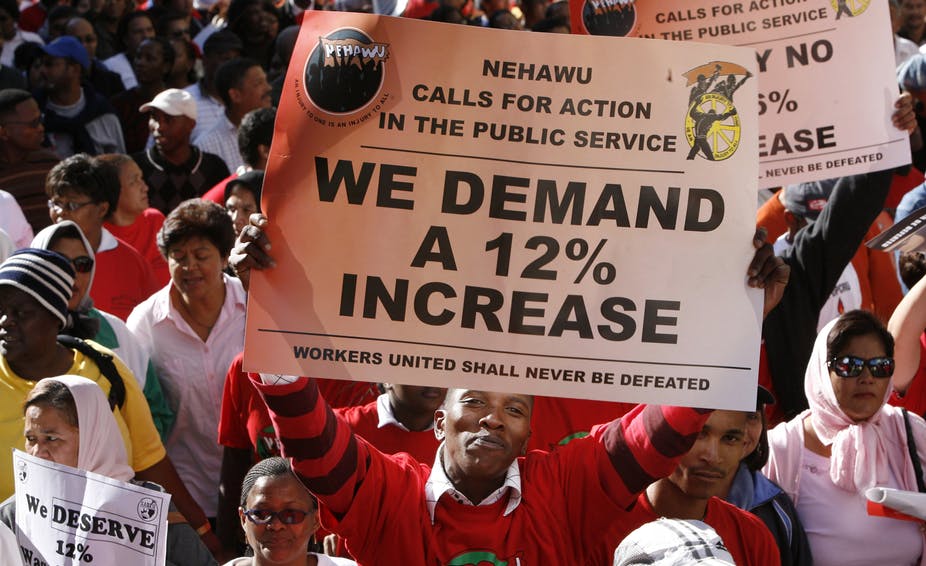South Africa’s workers lost an estimated R266 million in wages in 2018 due to strike activities, as work stoppages reached a five year high a new report from the Department Labour shows.
The report states that 137,712 workers were involved in labour disputes in 2018, close to 11% more than in 2017. That would mean an average of R1,931 each, or nearly a week worth of pay on minimum wage.
In 2018, more than one million (1,158,945) of working days were lost due to 165 industrial disputes, an increase of 20.7% compared to 960,489 working days lost from 132 strikes in 2017.
The report shows that the community industry in the public sector recorded the most strikes over the last five-year periods.
In 2018, the community industry recorded (77 strikes and 303,119 working days lost) the highest number of industrial disputes which resulted mainly from the health and social services and municipality workers who downed tools over grievances that were lodged against the employers for unpleasant working conditions in the sectors.
The manufacturing industry was the second highest with 23 strikes and 227,040 working days lost due to high wage demands by workers.
Demands
Over the five years (2014 – 2018), the demand over wages, bonus and other compensation benefits, grievances lodged against employers and unpleasant working conditions were the main reasons why workers went on industrial action.
In 2018, the majority of workers (68%) went on strike to demand high wages, bonuses and other compensation benefits.
The private sector saw more working days lost than the public sector in 2018, for example, the passenger transport sector lost 278,516 working days due to strike action.
Despite the 76 working days lost per 1,000 employees in 2018, the Department of Labour said it could not signify that South Africa is a ‘strike prone’ country when compared with other emerging countries.

